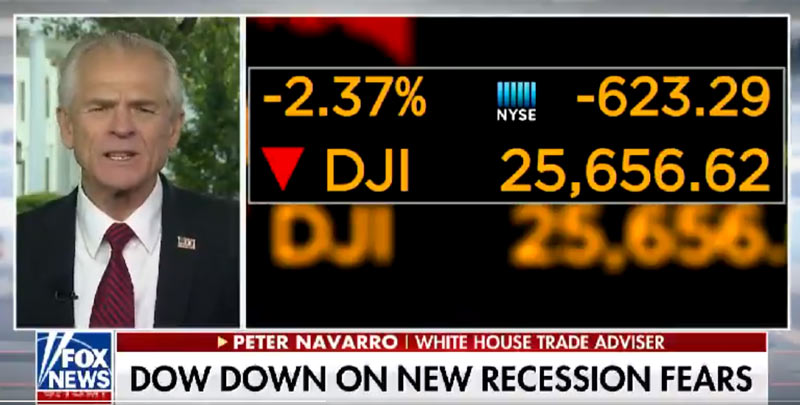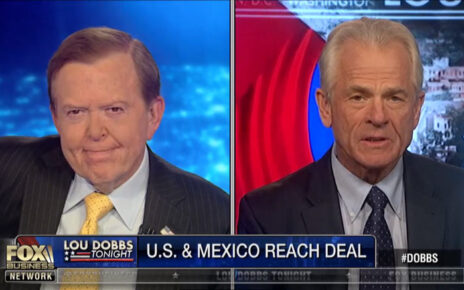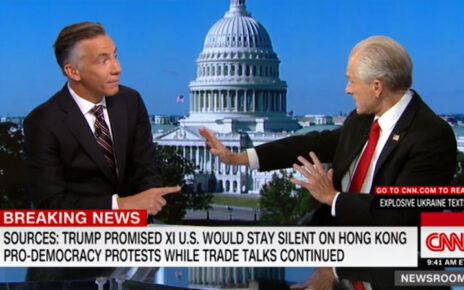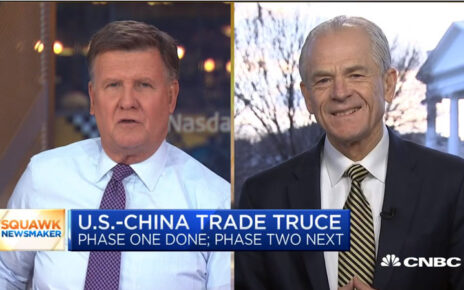August 14, 2019 – America’s Newsroom
Peter Navarro, who serves as President Donald Trump’s director of trade and manufacturing policy, referred to the White House’s decision to hold off and forego some additional tariffs on Chinese imports as a “Christmas present to the nation,” despite previously claiming that the tariffs were not having any impact on American consumers.
America’s Newsroom on Twitter: “WATCH: @SandraSmithFox spoke with White House Trade Adviser Peter Navarro as the DOW is down on new recession fears #nine2noon pic.twitter.com/vq2BNbj5Xt / Twitter”
WATCH: @SandraSmithFox spoke with White House Trade Adviser Peter Navarro as the DOW is down on new recession fears #nine2noon pic.twitter.com/vq2BNbj5Xt
“So, yesterday we had a big bump up on the market with President Trump’s Christmas present to the nation, with his announcement on tariffs,” Navarro said in an interview with Fox News’ America’s Newsroom on Wednesday. The trade adviser, who has been criticized by many leading economists for encouraging Trump’s propensity for tariffs, was attempting to explain why stocks had again dipped one day following the news that the government would not implement the full amount of new levies on Chinese goods that the president had previously threatened.
“This is basically the Federal Reserve’s problem, volatility” Navarro argued, repeating a popular criticism Trump has used to explain dips in the market. “They are causing this,” he continued, saying the ups and downs were due to the reserve’s chairman Jerome Powell previously raising interest rates. However, Powell announced a rate cut at the end of last month.
Navarro and Trump have repeatedly over the past few months insisted that U.S. consumers are not feeling the extra costs resulting from tariffs on Chinese goods. Asked by Fox News Sunday anchor Chris Wallace earlier this month whether the costs were being passed on to American consumers, Navarro responded by saying: “false.”
The trade official argued that Chinese manufacturers were decreasing prices significantly to compensate for the additional import levies, allowing U.S. businesses to pay essentially the same price as before trade tensions escalated last summer. But as Wallace pointed out, that assessment goes against the data of leading U.S. financial institutions and counter to reporting by Trump’s own administration. Wallace explained that data from Trump’s Labor Department showed that “on a macro and a micro level that tariffs cause consumer prices to rise.”
A May report published by Goldman Sachs assessed that: “The cost of U.S. tariffs have fallen entirely on U.S. businesses and households, with no clear reduction in the prices charged by Chinese exporters.” Additionally, a recently published study from scholars at Harvard University, the University of Chicago and the Federal Reserve found that the cost of tariffs on Chinese goods have “fallen largely on the U.S.” with a “nearly complete” transfer of additional costs to American importers.




